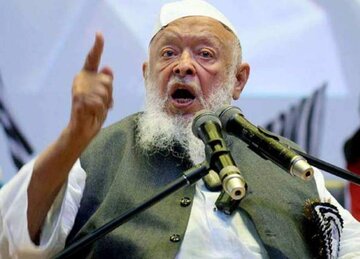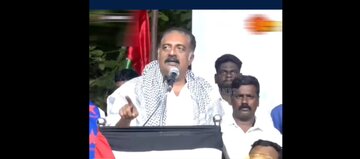AhlulBayt News Agency: The areas most affected by the unrest include Chamragudam, Berenga, and Old Lakhipur Road in Silchar. The protest rally began peacefully in the morning, with demonstrators holding placards and chanting slogans. Protesters described the Act as "anti-Islamic" and warned that their movement would intensify if the law was not repealed.
Tensions escalated when police attempted to break up the protest. Clashes ensued, with reports of stone-pelting by some protesters and lathicharge by police to disperse the crowd.
When asked about the cause of the violence, Cachar Police Chief Numal Mahatta stated that the police used "reasonable force" to manage the situation. He said, “At first, the rally was peaceful, but some troublemakers entered the rally and tried to create a law and order problem. We controlled the situation. Around 300-400 people had gathered to protest against the Waqf Amendment Act. All perpetrators who tried to disturb the peace will be booked under the law.”
A protester, meanwhile, emphasized that the rally was meant to be peaceful and condemned the violence. “We organised a peaceful rally against the Waqf Amendment Act in Silchar. We oppose the law because we believe it is anti-Islamic. We strongly condemn the stone-pelting incident,” he said.
Ironically, Assam Chief Minister Himanta Biswa Sarma had just a day earlier praised the peaceful response of the state’s Muslim community. In a press briefing, the Chief Minister had said that no untoward incidents had occurred in Assam related to the Act. “We had prior intelligence that after Friday prayers, there could be widespread protests. Assam Police worked hard over the past five days, engaged with minority leaders, and ensured peace was maintained,” he stated.
Across India, Muslim communities have taken to the streets in opposition to the Waqf Amendment Act, which introduces significant changes to the management of Waqf properties. While the ruling BJP claims the law is intended to improve transparency and streamline Waqf property administration, opposition parties and several Muslim organisations allege that the Act is part of a broader attempt to seize control of Muslim-owned properties.
In West Bengal’s Murshidabad, three people were reportedly killed during violent protests against the Act, prompting the Calcutta High Court to order the deployment of central forces to restore order. In Tripura, several police personnel were injured in clashes with demonstrators.
Many Muslim clerics and scholars have rejected the government's justification, accusing the Centre of targeting minority communities under the guise of legal reform.






Your Comment